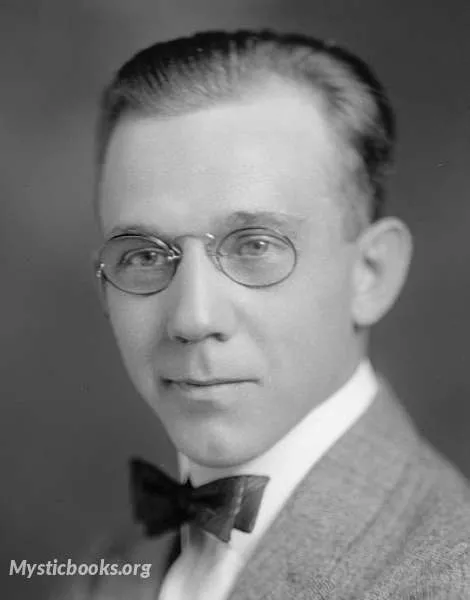
Timeline
Title
Country/Nationality
Ernest Poole
Ernest Cook Poole was an American journalist, novelist, and playwright. Poole is best remembered for his sympathetic first-hand reportage of revolutionary Russia during and immediately after the Revolution of 1905 and Revolution of 1917 and as a popular writer of proletarian-tinged fiction during the era of World War I and the 1920s.
Poole was the winner of the first Pulitzer Prize for Fiction, awarded in 1918 for his book, His Family.
Ernest Cook Poole was born in Chicago, Illinois, on January 23, 1880, to Abram Poole and Mary Howe Poole.[Poole was educated at home until he was almost 7 years old, at which time he was enrolled in Chicago's University School for Boys. There he first showed a proclivity for the written word, working briefly on the staff of the school newspaper.
Following high school graduation, Poole, an accomplished violinist, took a year off to study music, with a view to becoming a professional composer. He found the process of writing music difficult, however, and — inspired by his literary-oriented and story-telling father — turned his attention to the written word as a possible profession.
After his year-long escape from formal education, Poole moved to Princeton, New Jersey to attend Princeton University, where he attended courses in political science taught by Woodrow Wilson. There he continued to demonstrate an interest in journalism and fiction writing, working on the staff of the school's daily newspaper, The Prince — before finding straight journalism tedious.[
It was at Princeton that Poole was influenced to the ideas of progressive reform associated with the burgeoning muckraker movement, with the book How The Other Half Lives by Jacob Riis playing a particularly pivotal role in the evolution of Poole's worldview.
Poole graduated from Princeton cum laude in 1902 and immediately moved to New York City to live in the University Settlement House on the city's impoverished Lower East Side. During his stint as a settlement worker, Poole gained the notice of editors at McClure's Magazine for an article he wrote on the social situation in New York's Chinatown district and authored a report for the New York Child Labor Committee on the continuing child labor problem.
Pushed by the Child Labor Committee to seek publicity by rewriting some of his lurid anecdotes of the life of street urchins, Poole wrote an article that early in 1903 found its way into the fledgling muckraking magazine, McClure's. Payment for the freelance effort was received and confidence boosted. The next phase of Poole's life, that of a professional writer, had begun.
The tipping point for the 23-year old Poole as a settlement worker came when he was selected to investigate the problem of tuberculosis in New York City's Lower East Side tenement slums. Poole spent weeks going from room to room observing and surveying residents and taking testimony about the fate of previous inhabitants. His report, "The Plague in Its Stronghold," generated attention from the press and Poole conducted tours of reporters and photographers around the tenement blocks, with the coverage spurring hearings of the New York State Legislature in Albany. The task proved a strain on Poole's mental and physical well-being and he himself became feverish and was sent home to the family summer home in Lake Forest to recuperate.
Poole's time as a settlement worker at an end, he threw himself into investigative journalism. In 1904 the popular illustrated news weekly The Outlook dispatched Poole to live for six weeks in the packinghouse district of Chicago to report on the ongoing stockyards' strike, which prominently featured a melange of striking new immigrants from Southern and Eastern Europe against thousands of African-American strikebreakers brought for the purpose to the city.
When his Outlook piece was completed, Poole stayed on the scene as the volunteer press agent for the union of the striking slaughterhouse workers. The job put him in touch with the young Upton Sinclair, who was on the scene to do research for what he hoped would become the "Uncle Tom's Cabin of the Labor Movement," published in 1906 as The Jungle. Poole's close friends in New York included two others who would travel to Imperial Russia as correspondents in 1905 — the socialists Arthur Bullard and William English Walling.
Ernest Poole died of pneumonia in New York City on Tuesday, January 10, 1950, thirteen days away from his 70th birthday.
Books by Ernest Poole

His Family
His Family is a novel by Ernest Poole published in 1917 about the life of a New York widower and his three daughters in the 1910s. It received the first Pulitzer Prize for the Novel in 1918.

Harbor
The Harbor tells the story of Billy, a young man growing up on the bustling Brooklyn waterfront. He dreams of escaping the world of shipping, his father's business, and finding a life as a writer. His journey leads him to Paris, where he encounters...